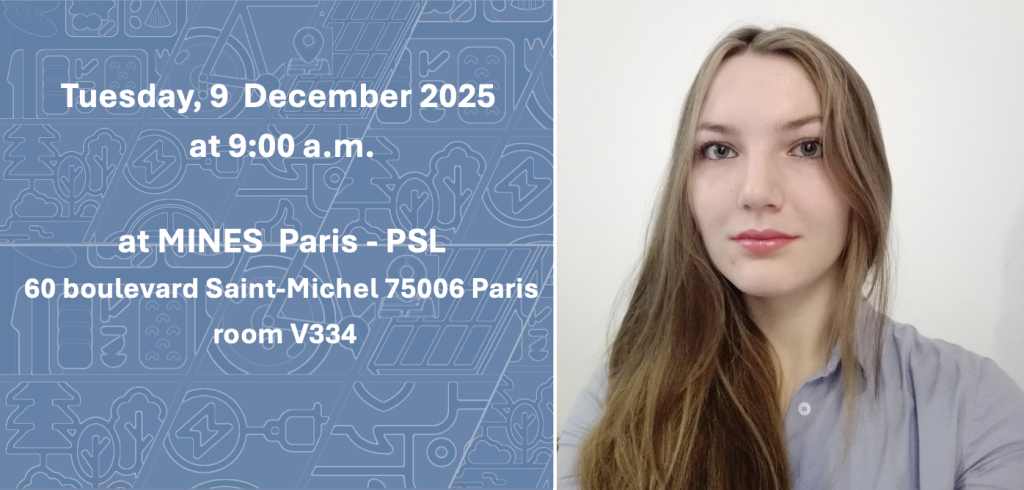The Center for the Sociology of Innovation (i3 CNRS UMR 9217, Mines Paris – PSL)
is pleased to invite you to the thesis defense of
Carole-Anne Tisserand
La politique de co-construction :
citoyen Post-It et innovation flexible
Le cas de la Smart Région francilienne
The Politics of Co-construction: Post-It Citizen and Flexible Innovation
The Case of the Paris Smart Region
Doctoral thesis specialized in STS (Sciences, Technologies & Society), prepared at Mines Paris – PSL, under the Social Sciences programme of SDOSE doctoral school, “Sciences of Decision, Organizations, Society and Exchange”

The jury is composed of:
| Alice Mazeaud | Lecturer | Université La Rochelle | Rapporteur |
| Pierre Delvenne | Professor | Uliège | Rapporteur |
| Catherine Elsen | Professor | Uliège | Examiner |
| Pierre-Benoît Joly | Research Director | INRAE Auzeville | Examiner |
| Brice Laurent | Mines Paris PSL | Thesis supervisor |
Summary of the thesis
This dissertation analyzes how “co-construction” is defined and implemented by the regional Smart team, which is responsible for digital and innovation projects within the Île-de-France Regional Council. The fieldwork, conducted between 2020 and 2023 as part of the Smart Region strategy (2018–2021), draws on two programs: Île-de-France Smart Services, a digital public service platform based on shared data from public and private partners, and Construire au Futur, Habiter le Futur (“Building the Future, Living the Future”), which brings together various stakeholders around innovation projects related to housing and construction. The dissertation shows that co-construction is conceived as a flexible mode of innovation designed to involve diverse actors in order to pool public and private resources and to identify the problems that services should address. The Smart team’s search for publics compatible with its vision of innovation through co-construction leads it to shape or imagine different kinds of publics—from the Post-it Citizen, highly mobilizable, to the Partner, deeply concerned, and the Persona, highly simplified. The politics of flexibility thus formulated relies on an injunction to simplification, which has significant implications for democracy, producing both exclusionary effects and a depoliticization of participation.
Résumé de la thèse
Cette thèse analyse la manière dont la « co-construction » est définie et mise en œuvre par l’équipe régionale Smart en charge des projets numériques et d’innovation au conseil régional d’Île-de-France. L’enquête, menée entre 2020 et 2023 dans le cadre de la stratégie « Smart Région » (2018-2021), s’appuie sur deux programmes : Île-de-France Smart Services, plateforme de services publics numériques fondée sur des données mutualisées avec des partenaires publics et privés, et Construire au Futur, Habiter le Futur, qui réunit des acteurs autour de projets d’innovation relatifs à l’habitat et la construction. La thèse montre que la co-construction est pensée comme un mode d’innovation flexible visant à impliquer divers acteurs afin de mutualiser ressources publiques et privées et d’identifier les problèmes auxquels les services doivent répondre. La quête de publics compatibles avec la vision que la Smart a de l’innovation par la co-construction la conduit à façonner ou imaginer différents publics, du Citoyen Post-it, hautement mobilisable, au Partenaire, hautement concerné, en passant par le Persona, hautement simplifié. La politique de la flexibilité formulée repose sur une injonction de simplification qui n’est pas sans incidence sur les questions de démocratie, entre effets d’exclusion et dépolitisation de la participation.
Keywords in English: democracy, Participation, STS, public, co-creation, innovation
Keywords in French: democratie, STS, Participation, public, co-création, innovation

